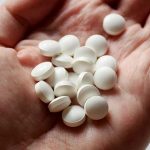Signs of a demerol overdose include vomiting and gurgling noises, shallow breathing, unconsciousness, blue lips and fingernails, and cardiac arrest. Symptoms of a Demerol overdose include respiratory depression, severe drowsiness, a slowed heart rate, and serotonin syndrome.
Naloxone is an effective immediate treatment for Demerol (meperidine) overdose, which can reverse the effects of opioid use and restore breathing. Further treatment can require immediate medical attention and care. Without treatment, opioid overdoses can be life-threatening.
Demerol is a synthetic opioid with a high risk of addiction and physical dependence. People who suffer from a substance use disorder involving Demerol may enter an addiction treatment program to reduce their long-term risk of overdose.
Signs Of Demerol Overdose
Signs of meperidine overdose that are visible to others can include:
- apnea (slowed or stopped breathing)
- blue lips and fingernails
- unresponsiveness
- reduced heart rate
- unconscious or comatose state
If you see these signs in a family member or loved one, call for help right away.
People who mix other prescription drugs with Demerol, such as monoamine oxidase inhibitors (MAOIs) or other opioids like fentanyl or oxycodone, may be at an increased risk of overdose or overdose-like adverse effects.
A healthcare professional prescribing Demerol for severe pain or chronic pain should be aware of all relevant medical history, including current CNS depressant, antidepressant, and benzodiazepine use, as well as any history of drug abuse.
Symptoms Of Demerol Overdose
Symptoms of Demerol overdose that a victim may experience include:
- hypotension (low blood pressure)
- clammy skin
- respiratory depression
- breathing problems
- lightheadedness
Common side effects of Demerol, such as constipation, lightheadedness, mood changes, and sedation, may happen before overdose symptoms.
Like other forms of opioid overdose, Demerol toxicity can cause vital functions in the central nervous system (CNS) to shut down.
One of meperidine’s metabolites, normeperidine, can reach high concentrations in the body. Normeperidine may cause Demerol overdoses more often than meperidine.
Treatment For Demerol Overdose
Naloxone can immediately reverse the effects of an opioid overdose and stabilize a victim’s breathing. Naloxone is sold as the brand name Narcan, an accessible nasal spray that does not require medical training.
Demerol tablets, also known as meperidine hydrochloride, may require stomach pumping in cases of overdose. General supportive measures such as IV fluids, oxygen, and vasopressors may be used as needed.
Patients who are physically dependent on Demerol may experience withdrawal symptoms when given naloxone. The dose of naloxone may be reduced when given to patients in this scenario.
Addiction Treatment Options
After a successful recovery from an overdose, you may still be at risk for serious side effects and health problems. You may be recommended to an opioid addiction treatment program to improve your long-term outlook involving opioid analgesic use.
An opiate treatment program often starts with supplying health information to your healthcare provider. Your history of substance use and risk of drug interactions may be recorded, before you begin a detox schedule.
Other treatment options may include mental health services, tapering, medication-assisted treatment with buprenorphine or methadone, and counseling.
For information on our outpatient programs, please contact us today.
Sources
Written by
Northeast Addition Editorial Team
©2024 Northeast Addition Center | All Rights Reserved
This page does not provide medical advice.




